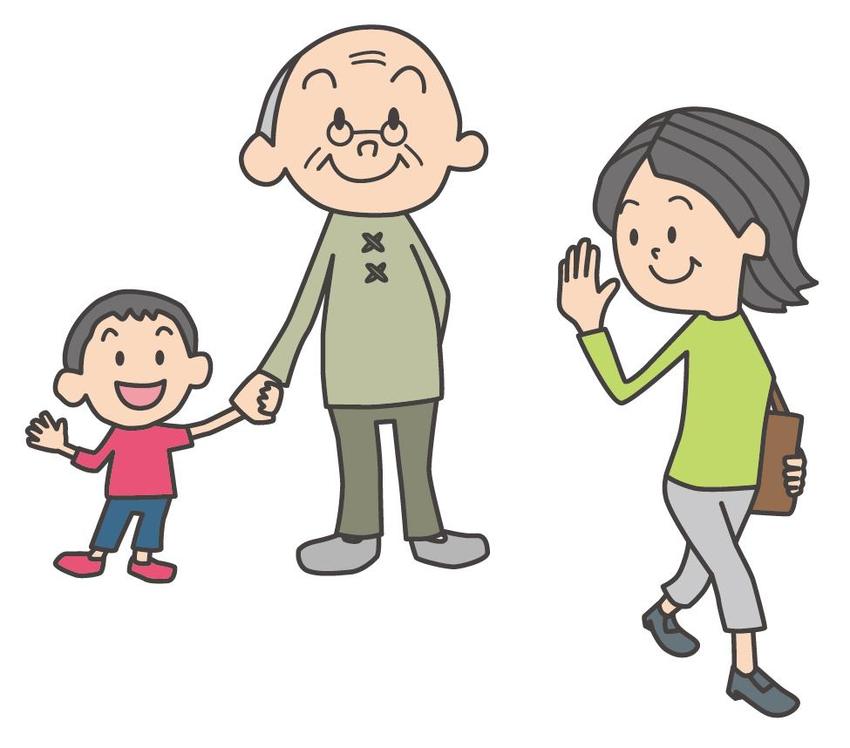いってきます [Itte-kimasu] といってらっしゃい [Itte-rassyai]
Greetings for when someone is going out
朝出勤(しゅっきん)するとき、お昼ご飯を食べに行くとき、夕方ランニングに行く時、週末(しゅうまつ)デートや旅行(りょこう)に行くとき… みなさんはなんと言ってでかけていますか?
日本語には「いってきます」という表現(ひょうげん)があります。これは自分がどこかに出かけるときに、その場にのこる人に対(たい)して伝えるあいさつです。その時はなれる場所は、家でも会社(かいしゃ)でもどこでもいいのですが、近い将来(しょうらい)その場にもどってくることを前提(ぜんてい)に使われます。
反対(はんたい)に、だれかをみおくるときには、「いってらっしゃい」を使います。
何も言わずに出かけるよりも、あいさつをすると気持ちがいいですよね。お母さんと子ども[ゆうと] の会話(かいわ)を見てみましょう。
ゆうと :お母さん!けんじくんと3時にうちの近くの公園(こうえん)でまちあわせてるんだ。
お母さん :あら、いいわね。3時っていったら… あと10分ね。
ゆうと :うん、だからそろそろ行こうかな。5時までにはかえってくるよ。
お母さん :わかった、気をつけてね。いってらっしゃい。
ゆうと :うん、いってきまーす!
What do you say when you go to work in the morning, go out for lunch, go running in the evening, head out on a date or travel for the weekend?
“Itte-kimasu” is an expression that means “I’ll be back” and you can use it when you head out somewhere. This phrase can be used anytime you leave a place, whether it’s your house or workplace. It also includes the premise that you will come back to the place in the near future.
“Itte-rassyai”, on the other hand, is the expression meaning “Have a nice day” or “I’ll see you later”, which you can use when you see someone off.
Doesn’t it feel better to say something like “Itte-kimasu” and “Itte-rassyai” than saying nothing when you or someone leaves? Let’s look at a conversation between a mother and a kid (Yuto).
Yuto : Mom! I’m meeting up with Kenji at 3pm at the park near our house.
Mother : That’s great. Let’s see… it’s only ten to three.
Yuto : Yeah, so I’m heading out. I will be back by 5pm as the latest.
Mother : Okay, be careful! See you later.
sign up for the Japanese-Online Newsletter
__..-・**・-..__..-・**・-..__..-・**・-..__..-・**・-..__
Japanese-Online offers a complete Japanese video course for only $14/month!Learn more at Japanes-Online.com
__..-・**・-..__..-・**・-..__..-・**・-..__..-・**・-..__

